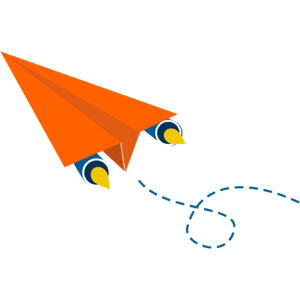| CFP closed at | March 23, 2023 14:00 UTC |
| (Local) |
In the last article, we looked at the pros and cons of using essay writing services for students and tried to answer the question “Is paperhelp.org legit to use in college?” Today we will talk about which disciplines and professions in the humanities will be more in demand in the coming years.
When a giant like Japan decided this year to promote technical careers over the so-called “arts” ones, a large-scale earthquake made us in the West wonder if we should not turn around and take that path. However, the justifications about the allegedly poor professional opportunities of humanities careers, or the questioning of their “usefulness” when knowledge -any knowledge- is within our reach with a click of a mouse, is shattered in a world that will really need professionals who reinterpret it from top to bottom.
Social Education: A very new discipline, but very much in demand, which will have a great future in these times because it tries to study and interpret social dynamics and the way to reintegrate those people who have been somehow left out of them. To identify present and future risk groups or to give protection to those groups that are more likely to be left out of the game, either because of economic problems or because they have some kind of disability.
Pedagogy: The issue of education is particularly acute in our time. Motivating students, connecting education and modern technology, the using various online services such as PaperHelp - all this puts us before new challenges and makes teachers rehabilitated professionals. With the world undergoing a pedagogical revolution, graduates in this area of knowledge will be in great demand in the future and, together with teachers and professors, will be one of the most important assets in the face of the profound changes to come. If Maria Motessori, for example, was indispensable for the improvement of the world and more than relevant in making governments around the world aware that education was going to be the engine that would drive the train of the future already at the end of the 19th century, the truth is that now, when all the curricula of the future are being reformed at breakneck speed, we need fresh and disruptive ideas to reinterpret the way in which we teach and learn.
History: A new landscape, a new world, needs to try not to fall back into the mistakes of the past. It is therefore important to know more and more about our history and how the delicate mechanism of events that has brought us here has been built. Good professionals in history will be needed to unravel these secrets, to warn us about the mistakes, but, above all, to highlight and enhance our successes in order to repeat them and make them as dynamic as possible.
Advertising: With the reactivation of the economy, the market and its competitiveness will return and, in an increasingly competitive market, with a foreseeable reorganization of many parts of it, it will be necessary to find advertising professionals who know how to make attractive the new options that will inevitably open up. As in the field of journalism, the irruption of the Internet has made it necessary to have new ideas to take advantage of all that the new medium has to offer.
Linguistics: Only in the field of Artificial Intelligence, a field in which the first steps are still being taken, although they are giant steps in recent times, there is plenty of room for linguistics. The task of making the new artificial intelligences as similar as possible to our ability to recognize the world and, above all, to sublimate and interpret it will be, in part, a success for linguists who will have to teach the new machines to communicate with us and to develop intellectual activities similar to human ones. Not only that, in the field of programming today and, of course, in the development of more effective search engines, graduates in this subject have an important role to play in making programming simpler and more understandable, as well as making search engines work in a much more intuitive way.
Journalism: The world of information has undergone a 180-degree change thanks to technology. The so-called traditional media (television, radio and press) are being replaced by all the possibilities offered by Internet technology (podcasts, blogs, video channels, confidential…). What was once only a small percentage complement to the analog media has now become the anti-monopoly of the large media groups that are turning to the network. In a changing landscape, it is becoming increasingly important to distinguish between propaganda, advertising and news, and this requires the help of true journalists who know how to filter, articulate and offer truthful and reliable information.
In short, in a world in which technology has gone from being the disruptive effect of the industrial revolutions of past centuries to occupying facets of our daily lives (a profound change that has occurred so gradually that we have not realized it), the truth is that humanistic knowledge and the arts will continue to play a fundamental role. Not only because it completes plots within that technology, such as industrial design or helping to improve existing programming. Per sé, the arts careers help us to better explain the world around us, understand its dynamics and continue to help us in the learning and teaching processes.
CFP Description
Today we will talk about which disciplines and professions in the humanities will be more in demand in the coming years.
